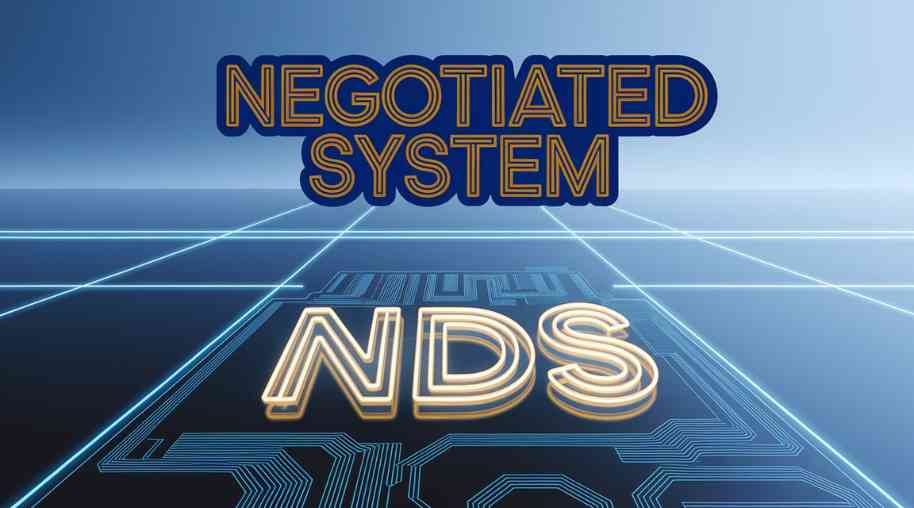NDS Full Form-Negotiated Dealing System
by Shashi Gaherwar
0 2645
Negotiated Dealing System (NDS): A Comprehensive Guide to India's Bond Market Platform
The Negotiated Dealing System (NDS), introduced by the Reserve Bank of India (RBI), is an electronic platform for trading government securities and money market instruments, enhancing transparency and efficiency in India's bond market. This article explores its features, advantages, and impact.

What is the Negotiated Dealing System (NDS)?
The Negotiated Dealing System (NDS), launched in 2002 by the RBI, is a screen-based platform for trading government securities (G-Secs) and debt instruments, replacing manual systems to improve transparency, liquidity, and settlement efficiency.
Objectives of the NDS
The NDS aims to:
- Enhance Transparency: Improves visibility in G-Secs trading.
- Reduce Risks: Ensures real-time trade processing.
- Facilitate Access: Provides online debt market access.
- Support Policy: Strengthens monetary policy via bond markets.
- Integrate Markets: Creates a unified debt instrument platform.
Features of the Negotiated Dealing System
NDS features include:
- Electronic Trading: Enables real-time G-Secs trading, eliminating manual processes.
- Straight Through Processing: Automates trade confirmation and settlement.
- RTGS Integration: Links with Real-Time Gross Settlement for seamless transfers.
- Centralized Access: Offers secure market access to institutions.
- Transparency: Enhances price discovery via real-time order matching.
Evolution of the Negotiated Dealing System
NDS has evolved through:
- NDS-OM (2005): Anonymous order matching for efficient G-Secs trading.
- NDS-CALL: Facilitates call money market transactions.
- NDS-OM Web: Enables retail investors to trade G-Secs online.
Participants in the NDS
NDS participants include:
- RBI: Regulates and oversees the platform.
- Commercial Banks: Trade bonds for liquidity management.
- Primary Dealers: Act as market-makers for G-Secs.
- Insurance/Mutual Funds: Invest for stable returns.
- Corporations/Institutions: Diversify portfolios.
Advantages of the NDS
NDS offers:
- Market Efficiency: Reduces settlement delays and risks.
- Transparency: Provides real-time trade data for confidence.
- Lower Risk: Automates settlement to prevent defaults.
- Policy Support: Aids RBI in liquidity and rate management.
- Cost Reduction: Lowers transaction costs by reducing intermediaries.
Challenges and Limitations of the NDS
NDS faces:
- Limited Retail Access: Initially institutional-focused, though NDS-OM Web helps.
- Technology Dependence: Relies on stable internet and infrastructure.
- Liquidity Issues: Some bonds face low trading demand.
The Future of NDS in India
Future NDS developments include:
- Blockchain Settlements: Ensures secure, tamper-proof trades.
- AI Trading: Uses AI for price prediction and automation.
- Retail Growth: Encourages more individual bond trading.
The Negotiated Dealing System (NDS) has transformed India's bond market, offering efficiency, transparency, and accessibility. With advancements like NDS-OM and NDS-OM Web, it supports both institutional and retail investors, strengthening India’s financial infrastructure.
Further Learning Resources
If you’re passionate about building a successful blogging website, check out this helpful guide at Coding Tag – How to Start a Successful Blog. It offers practical steps and expert tips to kickstart your blogging journey!
For dedicated UPSC exam preparation, we highly recommend visiting www.iasmania.com. It offers well-structured resources, current affairs, and subject-wise notes tailored specifically for aspirants. Start your journey today!

Share:









Comments
Waiting for your comments